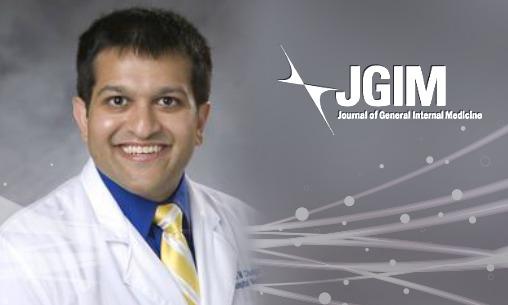
This week we learned from Dr. Saumil Chudgar about a perspective paper published in the current issue of the Journal of General Internal Medicine. He and Dr. Diana McNeill from Duke are 2 of the co-authors of this important document addressing the competing demands of the fourth year of medical school.
Citation:
Elnicki DM, Aiyer MK, Cannarozzi ML, Carbo A, Chelminski PR, Chheda SG, Chudgar SM, Harrell HE, Hood LC, Horn M, Johl K, Kane GC, McNeill DB, Muntz MD, Pereira AG, Stewart E, Tarantino H, Vu TR. An Entrustable Professional Activity (EPA)-Based Framework to Prepare Fourth-Year Medical Students for Internal Medicine Careers. J Gen Intern Med. 2017 Nov;32(11):1255-1260. doi: 10.1007/s11606-017-4089-8. Epub 2017 Jun 20. PMID: 28634908
Dr. Chudgar personally provided these insights for us:
Recently there has been a lot of debate about the increasing value of the fourth year of medical school, specifically discussing how students can use it to best prepare for their residencies and how schools can use the year to ensure that their students are ready to graduate and begin residency. I worked with an amazing multi-institutional committee of physicians representing the Association of Program Directors in Internal Medicine and the Clerkship Directors in Internal Medicine to make recommendations on a curricular framework that would help prepare fourth year students for Internal Medicine training.
Enhancing AAMC student to resident expectations
In 2014, the American Association of Medical Colleges (AAMC) proposed 13 Core Entrustable Professional Activities for Entering Residency (CEPAERs), responsibilities that graduating students should be able to perform without supervision when they enter residency. We chose five of these thirteen and for each, we address why this EPA is important to Internal Medicine residency training, where it could be taught/assessed in the fourth year of medical school, and how a school may assess this EPA.
The five CEPAERs chosen were:
- EPA-4: Enter and discuss orders/prescriptions
- EPA-7: Form Clinical Questions and retrieve evidence to advance patient care
- EPA-8: Give or receive a patient handover to transition care responsibility
- EPA-9: Collaborate as a member of an interprofessional team
- EPA-10: Recognize a patient requiring urgent or emergent care, initiate evaluation and management
"We hope that this manuscript will serve to generate discussion and new ideas among medical schools looking to prepare their students for residency training!"